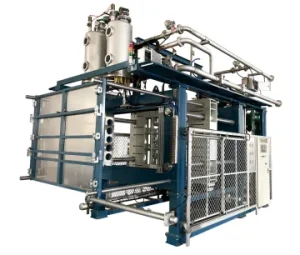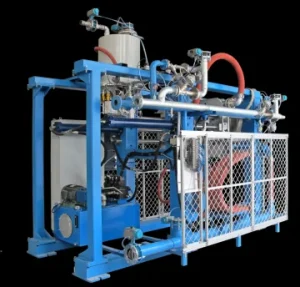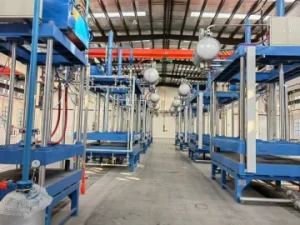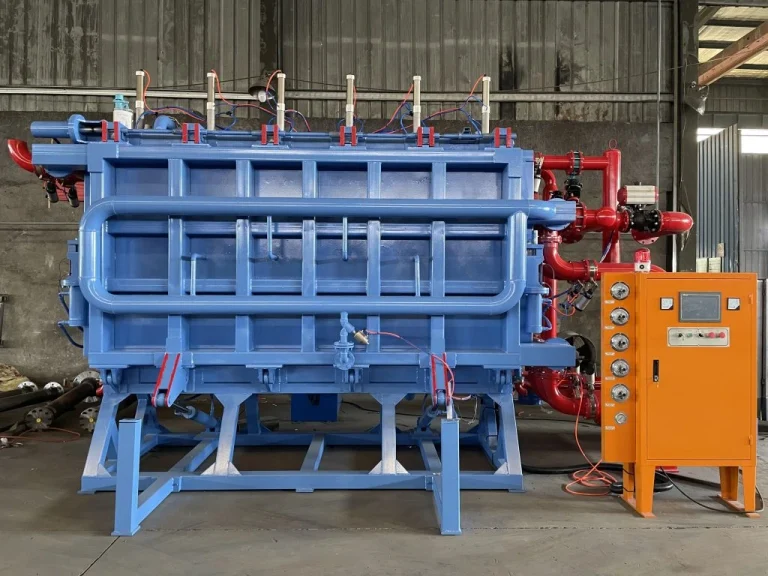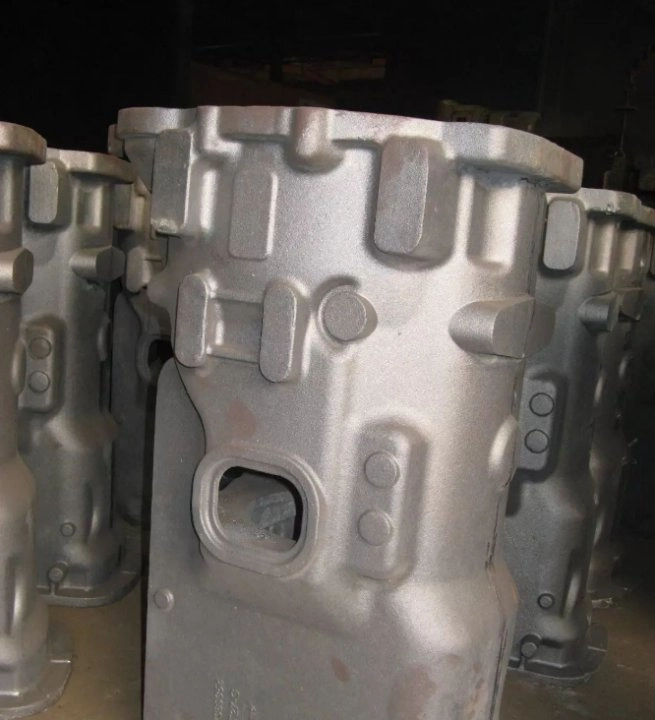Lost Wax Casting and Lost Foam Casting are the most important methods in precision casting, and industries in the line of business of automobiles, aeronautics, and machinery mostly depend on one of these two. While both of these are indispensable to make high-precision metal parts, there exist various fundamental differences that determine the use of each process. Understanding such differences is important to businesses seeking investment in the right casting equipment that will match their production needs. This article examines the unique features of both casting methods and discusses why Lost Wax Casting is emerging as the preferred option for many manufacturers.
Lost Foam Casting vs. Lost Wax Casting: A Comparative Overview
Essentially, both Lost Wax and Lost Foam are evaporative pattern casting methods by which a pattern is created to make a mold in which molten metal is poured. However, the material used for the pattern, the type of mold created, and the techniques involved in each process differ. Let’s look closer at these differences.
1. Material Used for Pattern Creation: Foam vs. Wax
The major difference between Lost Foam Casting and Lost Wax Casting is in the material used for making the pattern.
Lost Foam Casting (EPC): For EPC, the polystyrene foam material is used to make a pattern. A refractory coating is applied to this pattern of foam, where, after pouring in molten metal, the mold and the foam evaporate, leaving the part in a metal form.
Lost Wax Casting (LWC):In this technique, the pattern material consists of wax. The shell covering over the wax is coated in ceramic, and when that mold hardens, the melting away of wax removes the material inside; hence, “lost wax.”
In this way, this fundamental difference has consequences not only in the range of materials that can be used but also in cost, complexity, and sustainability between these two casting methods.
2. Mold Complexity: Simple vs. Intricate Patterns
Lost Foam Casting: EPC is, therefore, suitable for producing workpieces of complicated geometry in the minimum number of manufacturing steps. Since it’s much easier to manufacture complicated design and shape the foam pattern without assembling parts, or preparing an extra mould, the process gets quite simpler, and with great savings in time and expenses is the increase in speed and productivity.
Lost Wax Casting: Lost Wax Casting, on the other hand, excels in manufacturing fine, detailed designs and high-precision parts, especially when intricate detail is required. However, the process is more complex, since the wax pattern must first of all be meticulously crafted and then a ceramic shell gets built around it. Complexities in the mold are added by the extra step for pattern removal, as well.
3. Precision and Surface Finish: High Precision vs. Smooth Finishes
Lost Foam Casting: EPC realizes near-net shape casting and therefore involves fewer secondary machining operations compared to other processes; surface finish is generally not as smooth as in Lost Wax, and post-processing operations may be necessary, depending on the intended application.
Lost Wax Casting: Since the process makes use of a ceramic shell, and the wax pattern itself has very fine details, the surface finish is far superior. Hence, lost wax cast parts require much less post-processing for high dimensional accuracy and smoothness.
4. Cost and Efficiency: More Affordable vs. Higher Costs
Lost Foam Casting: EPC is generally more cost-effective, particularly for large-scale production. The use of foam as a pattern material is less expensive than wax, and the mold-making process is faster and simpler. In addition, EPC minimizes waste, making it ideal for companies in reducing material costs and enhancing overall efficiency.
Lost Wax Casting: Lost Wax is not necessarily ideal for the economic manufacture of very precise and detailed parts because of its rather complex process and its pretty costly ceramic shell material. Its usage of wax along with needing more time-consuming process stages contributes to increasing costs and hence renders it inefficient compared to EPC on very large orders. Where EPC proves less advantageous on many aspects:
5. Production Speed: Quick Turnaround vs. Longer Cycle Times
Lost Foam Casting: The simplicity and speed of EPC result in faster production times. A foam pattern can be readily manufactured and used to make the mold, which ultimately means quicker casting cycles and shorter lead times. In particular, this is very important for industries that need rapid prototyping or low-volume runs.
Lost Wax Casting: Lost Wax has additional processes, which are the creation of a pattern, shell building, and the removal of the wax. As compared to EPC, this method requires a more time-consuming process that turns out better details and accuracy; however, it is mostly used with a longer cycle time, sometimes taking days where production would be carried out in hours.
Key Differences at a Glance
| Feature | Lost Foam Casting | Lost Wax Casting |
| Pattern Material | Polystyrene foam | Wax |
| Pattern Complexity | Ideal for complex, simple-to-create shapes | Ideal for intricate, fine details |
| Surface Finish | May require post-processing | Smooth finish, less post-processing |
| Cost | More cost-effective, low material wastage | Higher cost, labor-intensive |
| Production Speed | Fast, with quick mold-making and casting | Slower due to multi-step process |
| Precision | High precision, near-net shapes | High precision, excellent surface finish |
Why Choose Lost Foam Casting for Your Business?
Considering the above comparison, EPC is far more cost-effective, faster in production, and able to create more complex parts. Since the industries are asking for more complicated and accurate castings with less lead time, Lost Foam Casting has obvious advantages.
For any firm seeking the best and most reliable Lost Foam equipment, it is upon Hangzhou Ouchen Technology Co., LTD. Ouchen has focused on high-end intelligent Lost Foam casting equipment and tries to provide the best solution for clients in order to improve the production efficiency with cost reduction. With the development of energy-saving technology and automation, Ouchen is the leading manufacturer of Lost Foam equipment that can meet modern industrial demands.
Why Choose Hangzhou Ouchen Technology Co., LTD?
1.Advanced Technology: Ouchen integrates the German EPS/EPP top technology into its Lost Foam systems to achieve precision and reliability at every single stage of the casting process.
2.Wide Range of Products: Ouchen offers all kinds of equipment for different stages in Lost Foam Casting, including foam sheet machine, pre-foaming machine, foam molding machine, and vacuum system.
3.Customer Options: With equipment that can be tailored to specific production needs, Ouchen ensures businesses can achieve their desired results with flexibility.
4.Proven Expertise: With years of industry experience, Ouchen is a trusted partner for businesses seeking high-quality, reliable Lost Foam Casting solutions.
Ouchen’s Equipment for High-End Lost Foam Casting
- Foam Sheet Machinesfor creating precise foam patterns
- Pre-Foaming Machinesfor optimal foam bead expansion
- Maturation Siloswith innovative anti-static bead transport technology
- Foam Molding Machineswith advanced PLC control for precision casting
- Vacuum Systemsand Air Dryers for enhanced mold consistency
Conclusion: Let Ouchen Change Your Casting Process
EPC brings forth many economical, faster, and more flexible solutions in comparison with Lost Wax Casting. If looking for quality and innovative machines and equipment that will promote an improved foundry casting procedure, then Hangzhou Ouchen Technology Co., LTD is one exceptional solution. With focused attention on automation and highly efficient while consuming less energy, Ouchen becomes one right partner in helping optimize enterprises concerned within the respective casting industries, including automobile, aerospace, and heavy machinery.
Contact Hangzhou Ouchen Technology Co., LTD today to learn more about how their high-end Lost Foam Casting equipment can take your production to the next level.

